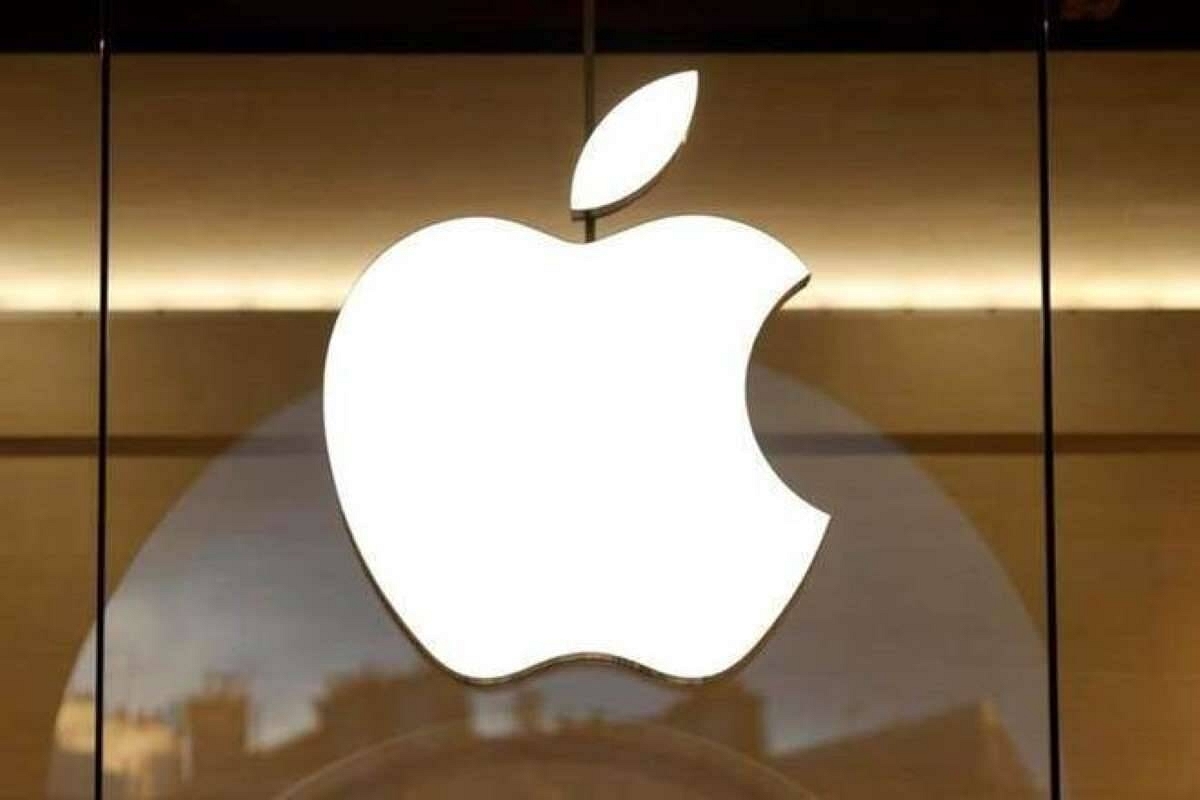Apple’s Fresh Strategic Partnerships In India’s Manufacturing Sector; Apple Supplier Corning Inc. To Invest Rs 1,000 Crore In Tamil Nadu For Gorilla Glass Manufacturing Facility
Apple is currently engaged in advanced discussions with prominent component manufacturers to fortify its manufacturing presence in the growing Indian smartphone market. Key players in these negotiations include India's Aequs Group, as well as Rayprus Technologies, a subsidiary of Taiwanese giant Foxconn specializing in precision camera and lens solutions. The Cupertino-based technology behemoth is also in preliminary talks with Indian contract manufacturer Dixon Technologies in a bid to diversify supply chains beyond China. Meanwhile, Renowned American gorilla glass manufacturer Corning Inc., a key supplier for tech giant Apple, is set to make a substantial investment of Rs 1,000 crore in establishing a cutting-edge manufacturing facility in Tamil Nadu.

Apple is currently engaged in advanced negotiations with component manufacturers, including India’s Aequs Group and the Taiwanese camera and lens manufacturer Rayprus Technologies.
Through this strategic initiative, the iPhone maker aims to enhance its manufacturing operations further in the world’s second-largest smartphone market.
Aequs Group, known for producing high-quality toys, consumer durable goods, and aerospace components across India, the US, and France, is a key player in these discussions.
Simultaneously, Rayprus Technologies, a subsidiary of the Taiwanese contract manufacturing giant Foxconn, specializes in crafting high-precision camera and lens solutions.
The Cupertino-based technology giant is also in preliminary talks with the Indian contract manufacturer Dixon Technologies, cementing its intention to diversify supply chains beyond China.
Individuals familiar with these developments have informed that the objective is not solely confined to diversifying within the realm of electronics manufacturing.

For instance, Aequs, with its expertise in high-quality plastic toys and aerospace products, could potentially contribute to the production of low-engineering products such as iPhone cases and other precision-centric items.
The ongoing discussions are expected to progress, with announcements anticipated in the near future.
Likewise, Rayprus, a Foxconn subsidiary, stands out globally as a leading manufacturer of multi-camera modules for smartphones and is distinguished as one of the rare suppliers of this technology not based in China.
According to another source, the unique requirements for iOS phones, Android phones, and phones running alternative operating systems necessitate differentiated specifications in multi-camera modules.
Hence, Factors such as sensors and chips, increasingly designed in-house by several companies, contribute to the distinctive demands of this technology. Therefore, technology leaders like Rayprus are considered reliable and prudent choices in this domain.
According to Pankaj Mohindroo, Chairman of the India Cellular & Electronics Association (ICEA), the potential and outlook for electronics manufacturing in India offer a “compelling opportunity” for traditional non-electronic companies to explore this sector, contributing to its scale and resilience.
Mohindroo emphasized that if the necessary actions are taken, lead firms in the global value chain, such as Apple, Dell, HP, and Foxconn, could play a transformative role in developing Indian suppliers.
Further drawing parallels with the transformation of the electronics industry in China, he illustrated how leading firms nurtured fledgling companies, leading to the emergence of giants like Luxshare, Lyngyi Tech, and AAC, ultimately shaping global Chinese brands like Oppo, Vivo, and Xiaomi.
India is poised for a similar transformation, with significant progress observed in its mobile phone manufacturing sector.
Mohindroo noted that key sub-assemblies like batteries, chargers, printed circuit board assembly (PCBA), and USB cables have achieved substantial localization and anticipates increased involvement of Indian companies in this space.

Diversifying Its Dependence
It was reported earlier that Apple was actively seeking new suppliers from India, Japan, Taiwan, and South Korea due to delayed government approvals for imports from existing Chinese-origin suppliers.
Backed by the production-linked incentive (PLI) scheme, Apple is aggressively pushing for manufacturing in India to diversify its supply chain away from China.
Major Electronics Manufacturing Services (EMS) players in India, including Foxconn, Pegatron, and Wistron (now under Tata Electronics), reflect Apple’s substantial commitment to the Indian market.
Reports also indicate that Tata Electronics, the sole Indian vendor to Apple, is looking to nearly double its iPhone casing facility, signalling an affirmation to expand its manufacturing operations in India.
Martin Yang, a senior analyst at US-based brokerage Oppenheimer & Co, highlighted Apple’s strategic approach, starting with partnerships in distribution and retail management, progressing to assembly with companies like Foxconn and Wistron, and concluding by bringing in suppliers.
At the same time, analysts note that challenges may arise in replacing Chinese suppliers for highly technical components like camera lenses, which demand precise engineering.
Nevertheless, Mohindroo of ICEA expressed optimism, stating that more Indian companies are expected to venture into the camera module space, emphasizing the capacity of Indian companies to produce certain aspects of camera modules for larger enterprises.
Apple has set an ambitious target of producing nearly Rs 1 lakh crore worth of iPhones in India by the fiscal ending March 2024 or the first quarter of FY25, with around 70% of the iPhones produced in India intended for export, spotlighting the increasing importance of India in Apple’s global manufacturing strategy.

More Promise
Meanwhile, US-based Corning Inc., a key supplier for Apple and renowned manufacturer of gorilla glass, is set to invest Rs 1,000 crore in establishing a manufacturing facility in Tamil Nadu, according to multiple sources familiar with the matter.
The facility is planned for Pillaipakkam near Sriperumbudur on a 25-acre plot, with potential for expansion if needed, and is expected to employ approximately 300 individuals.
The move signifies the formal entry of another Apple supplier into India, contributing to the growing ecosystem of both Apple and electronic component manufacturers in the country.
Although earlier reports in September suggested that Corning had chosen Telangana for its investment, sources now indicate that Tamil Nadu was ultimately selected due to its robust electronics ecosystem and proximity to other Apple suppliers.
Talks had been ongoing for a while, with the deal being finalized and sealed last week; the Memorandum of Understanding (MoU) is anticipated to be signed during the Global Investor Meet (GIM) scheduled for January.
TRB Rajaa, Industries Minister of Tamil Nadu, affirmed the state’s commitment to crafting an outstanding electronics ecosystem of international standards.
He emphasized the strategic approach of attracting specialized manufacturers capable of serving Original Equipment Manufacturers (OEMs), positioning Tamil Nadu as a global leader in electronics manufacturing.
Corning Inc., headquartered in New York, is a Fortune 500 materials science company and the inventor of gorilla glass, a durable glass widely used in portable devices like mobile phones, tablets, and laptops.
A source familiar with the developments stated that Corning, a monopoly in gorilla glass, will collaborate with its Indian partner Optiemus Infracom for the Pillaipakkam facility. While no specific timeline has been committed to, construction is expected to take approximately a year.

Tamil Nadu Over Telangana
Tamil Nadu hosts some of Apple’s major contract manufacturers, including Foxconn, Pegatron, and Tata Electronics.
On October 26, the Union Minister for Electronics and Information Technology, Ashwini Vaishnaw, shared on X that Corning is set to commence display glass finishing in India next year, with an initial capacity of 30 million pieces.
This development aligns with recent reports highlighting Apple’s initiative to bring additional suppliers to India due to delays faced by some of their significant Chinese counterparts.
The longstanding association between Corning and Apple dates back to 2007 when Apple sought the expertise of the glass specialist for its inaugural smartphone.
Neil Shah, Vice President of Counterpoint Research, identifies Corning as one of Apple’s pivotal suppliers, particularly for crafting durable cover glass screens for iPhones, iPads, and various other products.
The use of cover glass extends beyond smartphones to tablets, PCs, wearables, and automotive displays, presenting a lucrative opportunity for Corning to participate and fortify the Make In India supply chain.
Shah emphasizes India’s trajectory to produce over half a billion mobile phones annually, contributing to both domestic and export markets.

According to Apple’s supplier list for the fiscal year 2022, Corning operates facilities supplying Apple in mainland China (Fujian, Jiangsu, Zhejiang), South Korea (Chungcheongnam-Do), Taiwan, and the United States (Kentucky, New York).
Daniel Ives, Managing Director and Senior Equity Analyst at Wedbush Securities, views Corning as a substantial supplier for Apple in India, integral to the expansion of Apple’s manufacturing footprint.
Ives believes that Corning’s role in providing glass for the flagship iPhone underscores Apple’s strategic partnership with the company, signaling an imminent escalation in iPhone production in India.
Corning’s financials for the third quarter reveal robust performance, with revenue reaching $3.2 billion.
Specialty Materials, a segment of the company responsible for gorilla glass, reported sales of $563 million, up 33% sequentially, driven by heightened demand following customer product launches, including Apple’s new iPhone 15 lineup.
Corning’s innovations, spanning over 170 years, encompass foundational contributions such as the first glass bulbs for Thomas Edison’s electric light and the pioneering Gorilla Glass, known for its thin, lightweight, damage-resistant, and touch-responsive characteristics.
As the Corning facility emerges in Tamil Nadu, it remains uncertain whether its production will exclusively cater to Apple or extend its services to other clients.
Notably, Google, another client of Corning, announced plans in October to initiate manufacturing of its flagship Pixel devices in India, adding to the diverse landscape of electronic manufacturing in the region.

The Last Bit: As Apple charts a course to bolster its manufacturing foothold in India, the collaborations with Aequs and Rayprus Technologies signify a strategic move towards much-needed diversification.
The potential inclusion of Dixon Technologies further underlines Apple’s commitment to expanding its global supply chain beyond Chinese dependencies.
With the production-linked incentive (PLI) scheme acting as a catalyst, Apple aims to leverage the expertise of Indian manufacturers, potentially transforming the country into a significant hub for iPhone production.
The evolving dynamics of this venture hold the promise of reshaping India’s electronics manufacturing sector while propelling Apple’s global influence in the smartphone market.
Similarly, despite earlier considerations for Telangana, Corning’s strategic decision to invest in Tamil Nadu is a positive showing of the state’s robust electronics ecosystem and its proximity to other key Apple suppliers.
As the Memorandum of Understanding is poised to be signed during the Global Investor Meet in January, Tamil Nadu’s Industries Minister, TRB Rajaa, Corning’s investment is expected to contribute to Tamil Nadu’s emergence as a global leader in electronics manufacturing, with the facility playing a pivotal role in the production of gorilla glass, a key component in portable devices.
Overall, these positive developments reflect the dynamic shifts occurring in India’s manufacturing sector, with the potential to further solidify the country’s position as a prominent hub for electronics production.




